Book 3: Chapter 3- The Dionysia
The pompē, a grand procession to the Eleuthereus, the theater of the God of Wine and Revelry, marked the start of Dionysia. A statue of the god draped in a real leopard skin and crowded with a wreath of ivy was carried at the front of the procession, followed by phalloi made from wood and bronze carried aloft on poles, and a large phallus pulled in a cart. The phallus was a symbol of the God of Wine and Revelry. Chorēgoi, chorus leaders, dressed in ornate and expensive costumes sang and played music. Some of Athen's best poets and musicians lent their talents to the pompē.
Following the god's statue, sacred phalloi and the chorēgoí marched that year's archons, the city's magistrates. Archons came from the aristoi and agathoi, royals and nobles from Attica's most prominent oikoi, and served a term of one year. Aristoi and agathoi were also known as the Pentakosiomedimnoi, because their land produced five hundred bushels or more of produce a year.
After them came the five hundred members of that year's council carrying baskets of bread and flagons of wine for the sacrifice. The council was chosen from former archons and the wealthier members of the common people, known as hippeis (horsemen) because their land yielded three hundred bushels of produce, the necessary income to be able to keep a horse. They advised the archons and served for a year.
A herd of three hundred bulls lead by members of that month's Ekklèsia followed by the council. Members of the Ekklèsia were chosen at random each month's from among the common citizens of Athens and voted "yes" or "no" to proposals put forth by the council.
At the end of the procession rode the royal family. King Frederick drove his great bronze chariot pulled by two white horses. His armor and the ceremonial wreath of olive leaves on his head glinted and shone in the setting sun. Riding alongside him in the chariot were his wife and daughter. Queen Athena was dressed in an azure blue chiton and himation embroidered with golden thread. Her dark hair was pulled back in a gold net and adorned with a gold diadem set with garnets which matched her necklace. The gold jewelry and thread glittered in the torch light.
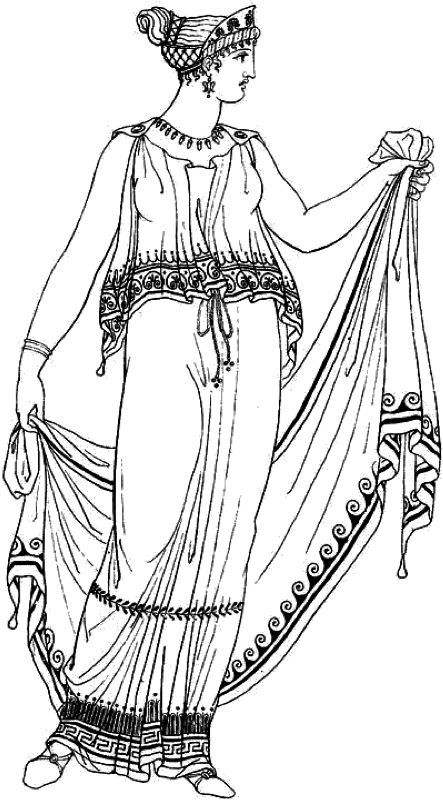
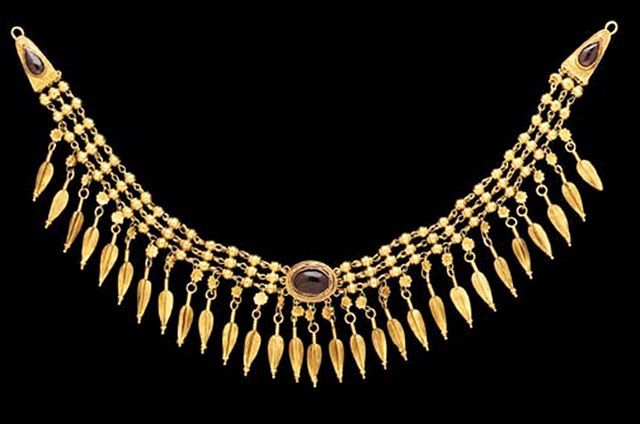
Princess Annabeth's blonde hair was worn in Cypriot curls. She wore a mint green chiton and himation with a sage green print and a pale pink peplos.

Heralds announced King Frederick's name and titles: King Frederick, Basileus of House Chase, Paramount Basileus of Attica, and Lord of Athens.
The crowd watching the procession was encouraged to follow it to the Eleuthereus on the southern slope of the Acropolis.
As low status metics (foreigners residing in Athens) and women, Hazel and Marie had to be content with bad seats at the back of the large theater; high status citizen men got the better seats. The only women allowed to sit at the front of the theater were the Queen and Princess.
Hazel and Marie sat down on one of marble benches and craned their necks to see what was happening on the semicircular stage which was decorated with garlands of ivy, grape leaves and pine cones.
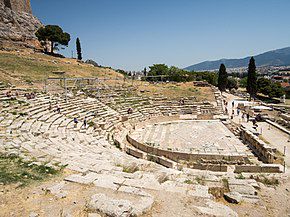
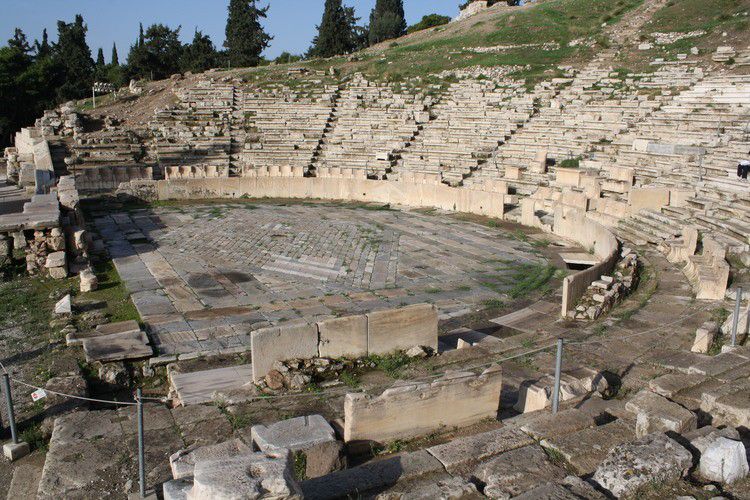
The stage of the Eleuthereus was consecrated with the sacrifice of the oxen, whose meat would feed the entire city of Athens at public feasts held each of the four day of the Dionysia. Hazel always hated having to watch the poor creatures die. They were strong, sturdy, dependable beasts. A bit stubborn and unwieldy but useful and worthy. Something about them reminded her of Frank. "Clumsy Ox" was what his grandmother had always called him whenever his great bulk got in her way. Frank's father had died in King Zeus's war and his mother had died in childbirth, so his grandmother was the one to raise. Her fine old soul had been in Elysium this past year. She had always been fond of Hazel and would be glad to know that she and Frank were going to be married.
The chorēgoí made offerings of bread and wine and lead their teams, called choruses, in a contest of lyrical and musical skill. They announced that the grain from the bread had been taken as tribute from the island of Euboea, one of the many islands in the Aegean that the two hundred strong Athenian fleet of triremes had subjugated.
As the contest went on, the slaughtered carcasses of the bulls were roasted on spits- their smoky aroma made Hazel's mouth water and her stomach growl. Roasted meat was a luxury she only enjoyed on special occasions such as festivals. Eating and drinking her fill of juicy, perfectly cooked and seasoned beef, bread made from the finest white flour, and wine sweetened with cinnamon were the best part of Dionysia.
"Fatten yourself up a bit," her mother teased as they went to get food. "You'll need to if you want to give Frank big, strong babies."
The feast following the opening sacrifices and chorus competition degenerated into drunken revelry through the streets of Athens. At the center of it all, wearing a plaster mask with yarn curls and a revealing, one shouldered girl's chiton, was Leo.
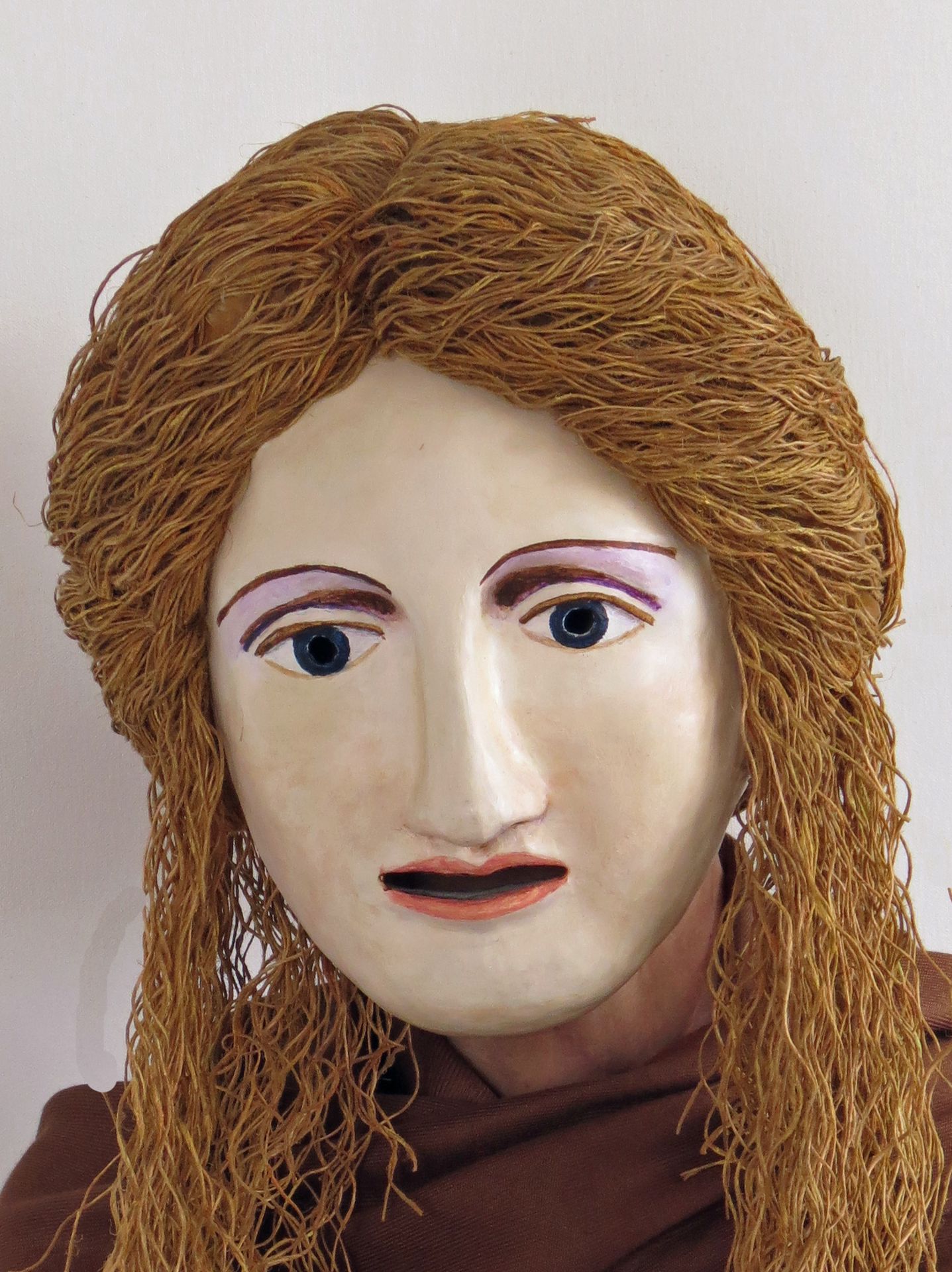
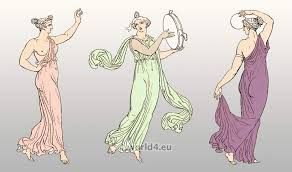
Hazel had seen him several times since the day she had accepted Frank's marriage proposal. He tried to act as if nothing had changed between them but she could tell her rejection had hurt him. Perhaps that was why he was threw himself into the Dionysia at breakneck speed. His sister Nyssa found him the next morning, passed out in an alley near the blacksmith's forge.
[There should be a GIF or video here. Update the app now to see it.]
The four days of Dionysia were taken up with theatrical performances and poetry competitions in the afternoons and public feasts and festivals in the evenings. During one of the plays, the children of the soldiers killed during the war were paraded across the stage. The chorus, with their pale masks made to look like moaning ghosts and dust colored shrouds, asked the citizens to contribute to their upkeep.
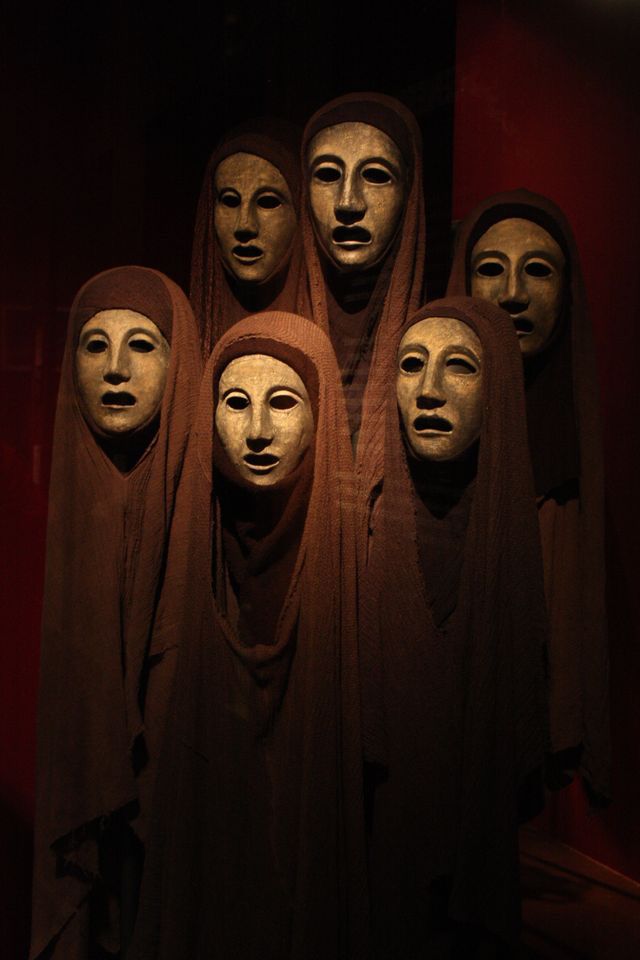
Hazel and her mother each donated a bronze obol. She wanted to give a silver drachma but was afraid of her mother's disapproval.
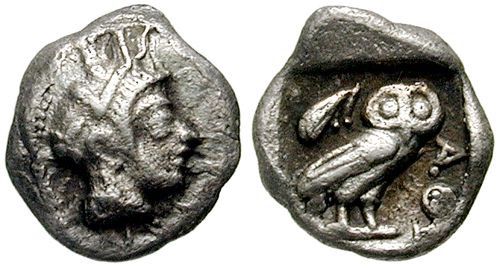
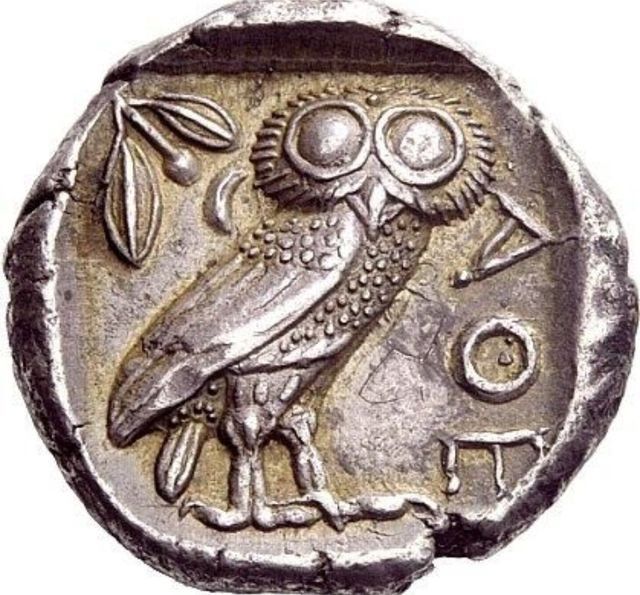
The bronze and silver coins, stamped with the profile of the Goddess of War and Wisdom on one side and her sacred owl and olive branch on the other, glinted in the sun. A few golden drachmas were scattered in among them. Hazel imagined that these splendid coins had been put in by members of the royal court.
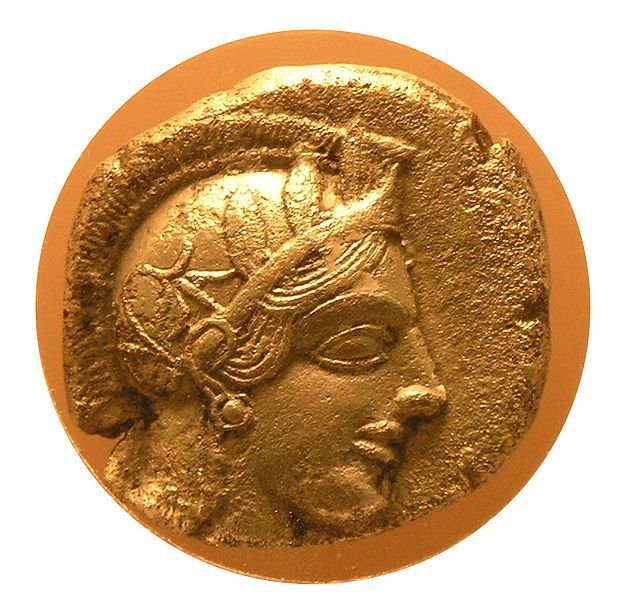
By nightfall, the streets of Athens were mobbed with revelers and the musicians, dancers, acrobats and other performers who were there to entertain them. Hephaestion, the story-teller, frightened a group of children will his tales of the witches of Ogygia. Massive hunks of beef roasted on a spit over a fire. Loaves of bread were broken and passed around and wine flowed freely from giant urns. Leo in his girl's chiton, plaster mask, and yarn curls guzzled down cup after cup and danced every dance without seeming to get tired. He flirted with every pretty maiden he came across and narrowly avoided fights with some of those girls' lovers.
Nyssa managed to curb Leo's behavior by swearing to all the gods that she would make him suffer if he humiliated their family by passing out drunk in the middle of the street again. She was a tall, brawny girl with a scowl like a gorgon, the only thing that could get Leo to behave himself.
Hazel couldn't help but feel like she was the reason Leo was acting this way. She hoped his heart would mend and he would find the right girl.
Frank was busy guarding the royal family but he came to see her whenever he could. He told her all about the symposia (drinking parties) which King Frederick and his hetairos had at the palace. Symposia were all male affairs, the only women in attendance were dancers and musicians brought in to entertain the guests and hetairai, who were their mistresses. They drank watered-down wine from kylixes painted with eyes on the side and rude scenes on the bowls.
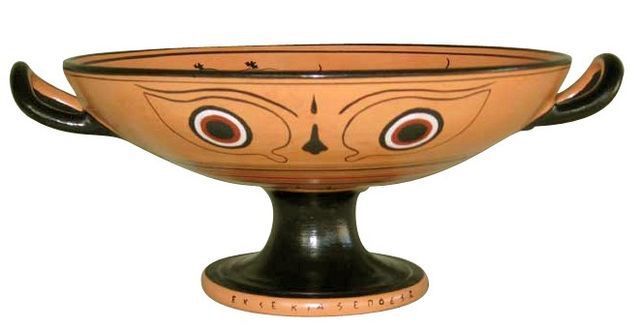
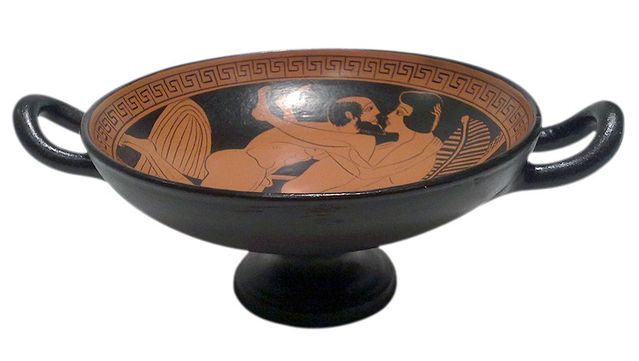
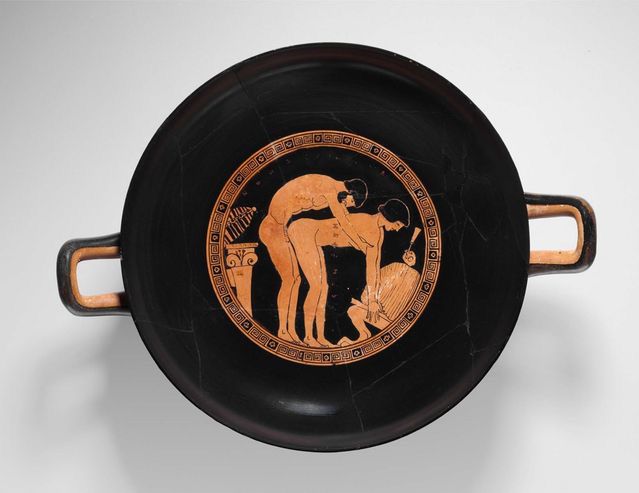
Watered-down wine gave you a buzz which facilitated conversation but was not as potent as regular wine. Frank described a game called kottabos which they played. Each of the players to flick some of their wine into a pot in the center of a table. If you miss, then you must take a sip of your wine.
As they drank, dallied with the female entertainment, and with each other, and played kottabos, they discussed the plays and poetry being performed during Dionysia and who they thought should win the prizes.
These winners would march in a procession at the end of the festival wearing the wreaths of ivy which were their prizes.
"Sounds glamorous," Hazel replied to Frank's descriptions.
They were sitting on a wall along the top of the Acropolis watching the sun set over Athens. She rested her head against his broad shoulder.
"I think I should get you home now," Frank whispered as he stroked her hair. "Your mother will be wondering where you are and I'm needed back at the palace."
"I hope you're not going to be this busy when we're married," Hazel replied.
"I try not to be," he brushed his lips against her forehead.
"When should we have our wedding?"
"I've been chosen to accompany the King and Queen back to Thessaloniki for the Princess's wedding. We can be married then."
"I'll tell my mother."
Hazel kissed him while he was still sitting down and bid him good night before running down the great steps.
Bạn đang đọc truyện trên: Truyen247.Pro